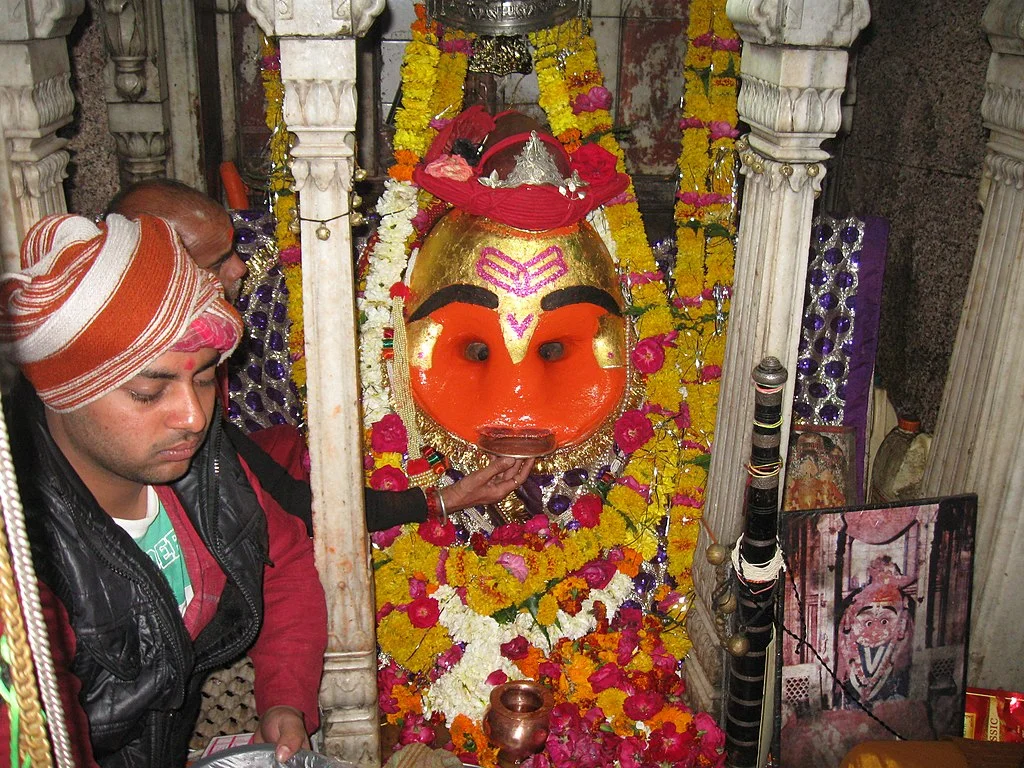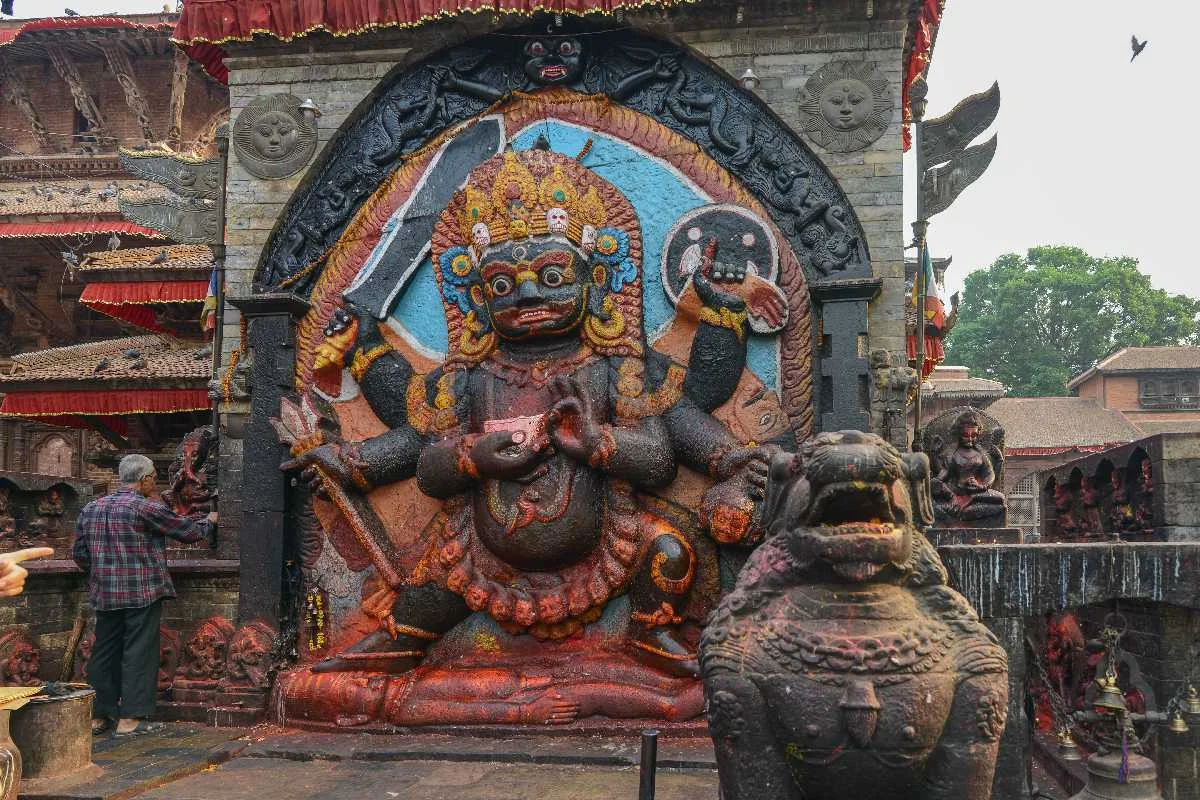Introduction
Located in the historic city of Ujjain, the Kaal Bhairav Temple stands as a testament to the rich cultural and religious tapestry of India. Among the unique practices associated with this ancient temple is the offering of liquor by the devotees. This tradition, though unconventional to some, holds deep significance in the spiritual fabric of the temple. Let us know the mystery associated with this practice and find out the reasons behind offering liquor to Lord Kaal Bhairav.

Kaal Bhairav Temple Historical Perspective
To understand the tradition, one must first appreciate the historical context of Lord Kaal Bhairav. Kaal Bhairav, known as the fierce form of Lord Shiva, is worshiped as the guardian of Ujjain. Legend has it that Lord Bhairav is the Kotwal (police chief) of the city, who maintains order and dispenses justice swiftly. The association with wine is believed to be rooted in ancient rituals in which the fierce energy of the deity was invoked for protection and well-being.

Symbolic significance
Offering liquor in Kaal Bhairav temple is not about enjoyment, but has symbolic meaning. Devotees believe that offering liquor to God symbolizes surrendering one’s vices and negative tendencies. It is an act of accepting the transitory nature of material pleasures and seeking spiritual growth. The offering is a metaphorical gesture of removing attachments that hinder one’s journey towards self-realization.
Tantric Traditions
Kaal Bhairav Temple is closely associated with Tantric traditions, where rituals often involve unconventional practices. Tantricism emphasizes the harnessing and transformation of both positive and negative energies to achieve spiritual enlightenment. The offering of wine in this context is seen as a way of transcending and transforming worldly desires into higher spiritual consciousness.
Also Read : Immerse Yourself in Spirituality and Spectacle: Kumbh Mela 2024 in Prayagraj
Cultural Acceptance
Although offering liquor to deities may raise objections in some circles, it is important to recognize the cultural acceptance and reverence associated with such practices. In Ujjain, the tradition of offering liquor to Lord Kaal Bhairav is included in the local customs and is widely accepted as a sacred ritual. Devotees do not see this as an act of indulgence but as a symbolic gesture of devotion and purification.
Impact on devotees
It is believed that offering liquor in the Kaal Bhairav temple also has a transformative effect on the devotees. It serves as a cathartic experience, allowing individuals to confront their internal conflicts and shortcomings. The ritual becomes an intense moment of self-reflection and dedication, paving the way for personal growth and spiritual development.
Modern interpretations
In today’s context, as social norms are evolving, the tradition of offering liquor at Kaal Bhairav temple gives rise to debate and discussion. Some argue for preserving cultural authenticity, while others question the relevance of practices that may be considered unorthodox. It is important to have these discussions with an open mind, respecting the diversity of beliefs and practices that contribute to India’s rich spiritual heritage.
Also Read : Famous Temples to Visit in India: A Spiritual Journey through the Temples
Conclusion
Offering liquor at the Kaal Bhairav Temple in Ujjain is a unique and ancient tradition that reflects the deep spiritual roots of the region. It is essential to understand the symbolic significance, historical context, and cultural acceptance of this practice to appreciate its deeper meaning for devotees. As we move forward at the intersection of tradition and modernity, it is important to approach such rituals with respect and an open heart, recognizing the diverse ways in which people connect with the divine.
Frequently Asked Questions (FAQs)
1.Why is liquor offered at Kaal Bhairav Temple in Ujjain?
Devotees believe it symbolizes surrendering vices and negative tendencies, fostering spiritual growth.
2.What is the historical significance of this tradition?
Rooted in ancient rituals, it invokes the ferocious energy of Lord Kaal Bhairav for protection and well-being.
3.How do Tantric traditions connect with liquor offerings?
Tantricism views it as a means to transform energies, channeling mundane desires into a higher spiritual consciousness.
4.Is offering liquor widely accepted in the local culture?
Yes, it’s deeply ingrained in Ujjain’s customs, seen as a sacred gesture of devotion and purification rather than indulgence.
5.How does the ritual impact devotees personally?
It serves as a cathartic experience, prompting self-reflection and surrender, fostering personal growth and spiritual evolution.
To Get more such updates and crucial information stay in touch with The Digital Today.
Also Read : Why Is Ram Lalla Idol “Black” in Ayodhya Temple?

